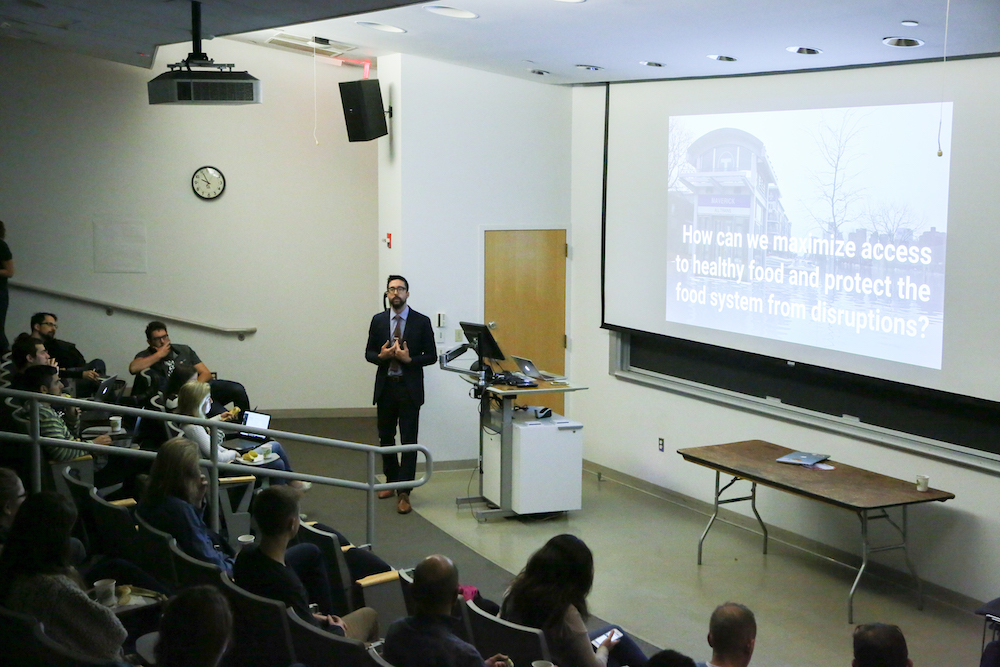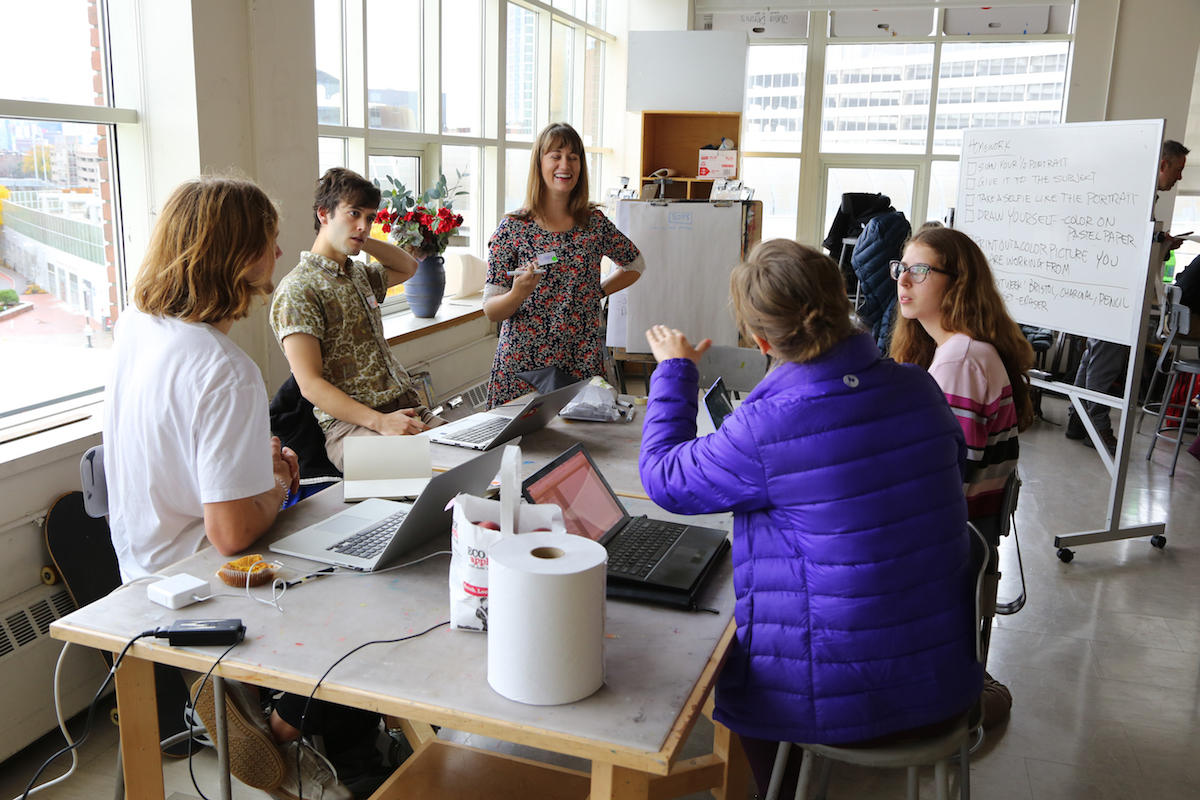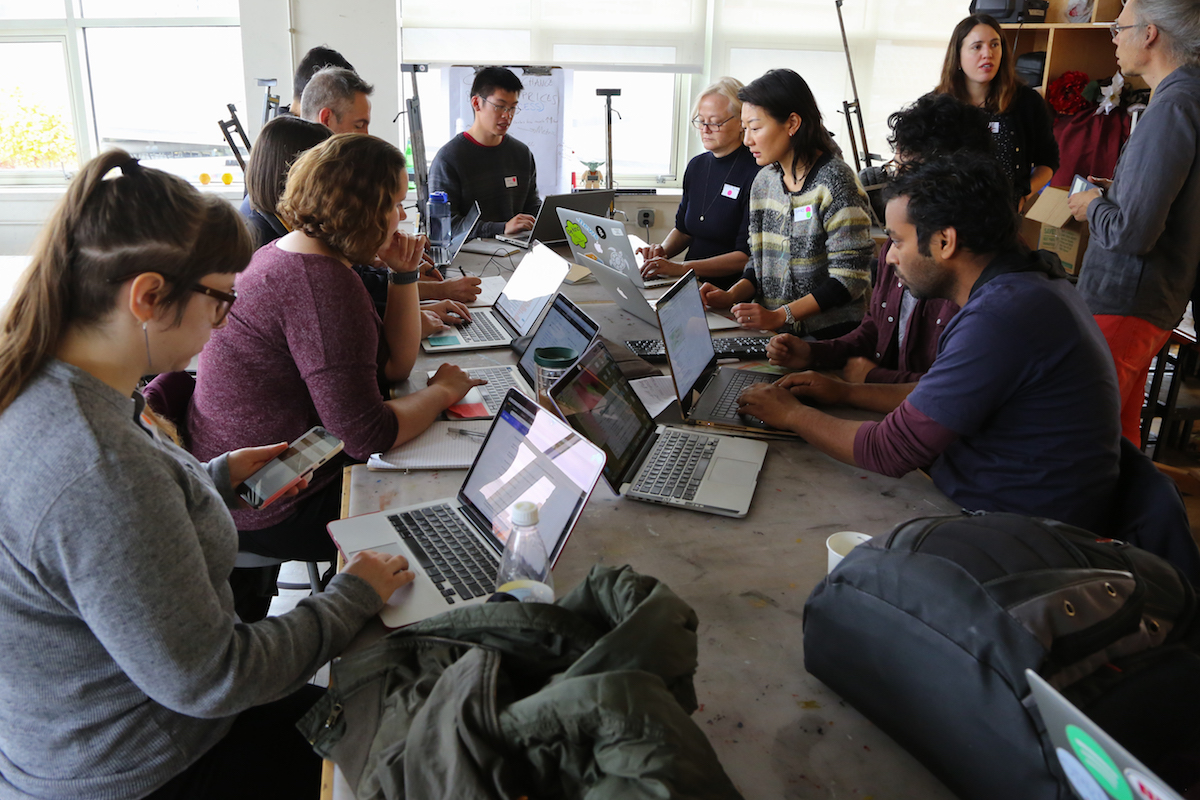Not every Boston neighborhood has equal access to healthy, affordable food. The city’s food system, in fact, is rife with vulnerabilities – from storm surges to food waste to transportation issues. So how can Boston maximize access to healthy food and protect its food web from disruptions?
This question guided designers, data scientists and storytellers from a range of disciplines and industries to present solutions to food security in Boston at Northeastern University’s “Sourcing Boston” hackathon last weekend. Kicking off the event were 5-minute lightning talks by Brian Romerat Thomson Reuters Labs, Global Resilience Institute post-doc Liz Allen, Project Bread’s Leran Minc and Red Tomato’s Gideon Burdick.
Hackathon participants bridged distinct backgrounds and skillsets to form teams exploring issues like seniors living in food deserts, the cost of organic produce in Boston, and the impact of sea level rise on grocery and convenience stores. Pizza and energy drinks fueled the participants for approximately 24 hours to analyze and visualize various datasets, including City of Boston food access scores, historic and projected sea level rise data, and spreadsheets from two sponsor organizations: Project Bread, which shared information on school meals across Massachusetts, and Red Tomato, which provided their statewide produce sales data.
Winning projects – which can be viewed here – mapped accessibility scores to Supplemental Nutrition Assistance Program (SNAP) sites and summer lunch distribution sites for low income students; mapped Boston food access and sea level rise alongside wealth in Hong Kong; and compiled weeklong schedules for access to food resources based on a given zip code.
At the end of the hackathon, a dozen teams presented their work before three judges: Thomson Reuters data scientist Liz Roman, Northeastern professor Christopher Bosso and Northeastern data visualization expert Steven Braun.
Organized by Aleszu Bajak and Dietmar Offenhuber in the College of Arts, Media and Design, the hackathon brought together sponsors Global Resilience Institute, TCB Analytics, RStudio, Project Bread and Red Tomato.


Photos: Josh Qualls.


